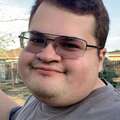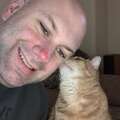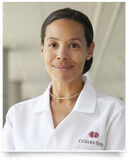“What Causes Atrial Fibrillation After Heart Valve Surgery?” Asks Ted
By Adam Pick on May 20, 2011
Last week, at the American Association for Thoracic Surgeons meeting, Ted sent me a great question about atrial fibrillation after heart valve surgery. He writes, “Dear Adam, I had my aortic valve replaced. The new valve is a pericardial tissue heart valve. What causes A-Fib after surgery? I had one incident of A-Fib while in the hospital followed by four more incidents two weeks after surgery. Thank you! Ted”
To help Ted, I asked Dr. Niv Ad, the chief of cardiac surgery at Inova Heart & Vascular Institute in Falls Church, Virginia, this exact question. So you know, a key research initiative of Dr. Ad’s practice focuses on atrial fibrillation. Here is Dr. Ad’s video response to Ted.
I want to thank Ted for his question. Plus, I have to offer a special thanks to Dr. Niv Ad for his continued support of this patient and caregiver community. Dr. Ad has really helped transform this resource from an ordinary website into an extra-ordinary community. Thanks Dr. Ad!!!
For those of you who are hearing impaired, I have provided a written transcript of this video interview below.
Adam: Hi, everybody. It’s Adam and we are coming to you from the AATS in Philadelphia. I’m thrilled to be standing next to Dr. Niv Ad who is the Chairman of Cardiac Surgery at Inova Heart and Vascular Institute in Falls Church, Virginia. You might recognize him from the patient reunions that he holds on an annual basis. It’s a great thing that you do for the patients. And we have a question that comes in from Ted. Ted writes, “Dear Adam. I had my aortic valve replaced. The new valve is a pericardial tissue heart valve and I’ve experienced afib after surgery. The question is: What causes afib, atrial fibrillation, after surgery?”
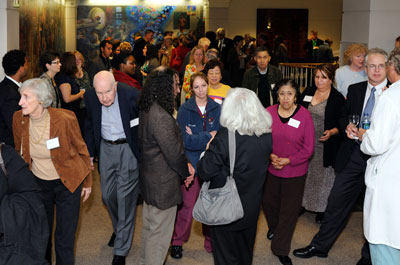
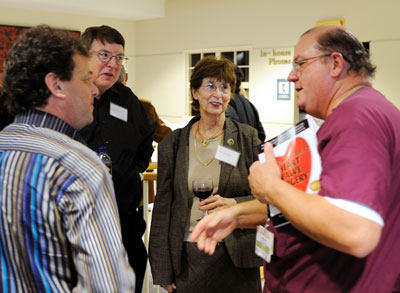
Dr. Ad: Well, that’s a very good question. Atrial fibrillation after open heart surgery in general and valve surgery in particular is a very common problem with an instance of anywhere between 20, 22 %, about 50%.
Adam: Wow.
Dr. Ad: And the etiology is not so clear to us and may go all the way from inflammation of the surgery to some more a basic mechanism related to heart function and possibly myocardial cell function that we published heavily about in the past.
Adam: I guess the follow-up question would be is if – when this does occur, and it sounds regular from your comments, how do you then treat it? What’s done?
Dr. Ad: So, when patients experience atrial fibrillation after surgery and the big question is how long it takes before they convert back to sinus rhythm. If it’s anywhere between a couple of minutes to a few hours, then we usually don’t treat it. However, if it’s looks more sustainable and patients are symptomatic, we treat it with anticoagulant drugs and if it goes for over 18 hours, we start anti-coagulation (Coumadin). If anticoagulant drugs are not helping, then many patients do have to have electrical cardioversion. You can have anywhere between one to a few events and the good news now is that in 99% of the cases, it just goes away as the time passes. By six weeks this is minimal incidence.
Adam: Great. Well, Dr. Ad, thank you so much for everything that you’ve done. I really appreciate it. You’ve been a great contributor to the site, really helped us educate all the patients out there and their caregivers. Thanks again for all you do.
Keep on tickin!
Adam
|
Paul Klaassen says on May 20th, 2011 at 1:33 pm |
|
“However, if it’s looks more sustainable and patients are symptomatic, we treat it with anticoagulant drugs…If anticoagulant drugs are not helping, then many patients do have to have electrical cardioversion.” The way this is phrased makes it sound as though the doctor is attempting to correct the arrhythmia with anticoagulants. Unless I very badly misunderstand the treatment (and I am NOT a doctor so that IS possible) it is important to clarify that the anticoagulation is not expected to stop the AF, merely to protect the patient from the most harmful possible outcome of it. AF can lead to clotting (due to ‘stagnant’ blood in the atrium) which in turn can lead to stroke or other complications. Also, as I understand, and have experienced myself, beta-blockers are often used to TREAT AF before cardio-version is applied as a last resort, though some doctors would go there first. In my own case I was prescribed a beta blocker (bisoprolol) post surgery in the anticipation that it would help with potential AF, as well as prevent my heart from working excessively hard. I was only allowed to stop the BB when I could demonstrate a regular rhythm on a 48 hour Holter monitor. |
 |
|
Kerrigan says on May 20th, 2011 at 4:09 pm |
|
I had a lot of incidents of my heart skipping beats for the first 2 years. After a lot of exercise (as Adam wisely recommends in his book,) it only gets into that when I drink way too much coffee or get stressed over something. Getting those two in hand greatly reduced the frequency. |
 |
|
Linda Stevens says on January 29th, 2014 at 8:09 pm |
|
My husband has had atrial fib since a repair of an ascending aortic aneurysm and aortic valve replacement two years ago. He was cantilevered with some improvement, but still needs to take Sotolol. Are there any new treatments for this? |
 |









